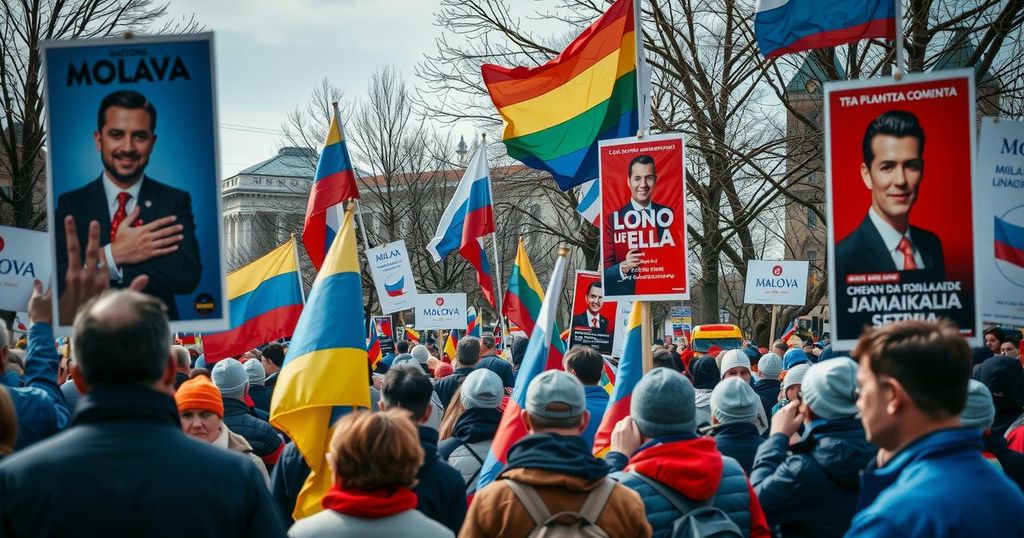Moldovan Election: Russia-Friendly Candidate Leads Amid Allegations of Kremlin Interference

In Moldova’s presidential election run-off, Alexandr Stoianoglo has taken a narrow lead over Maia Sandu amid claims of Russian interference. With the election seen as a referendum on ties to Europe versus Russia, Stoianoglo’s alignment with Moscow has raised concerns about the integrity of the election process, particularly with reports of financial manipulation and disruptions at polling stations. The final results are set to be announced shortly, with implications for Moldova’s future geopolitical stance as articulated through voter turnout and support for either candidate.
In the recent presidential election run-off in Moldova, Alexandr Stoianoglo has secured a slight lead over the incumbent pro-European leader, Maia Sandu, as per preliminary results. Having received support from the pro-Russian Party of Socialists, Stoianoglo has advocated for a closer affiliation with Moscow, which stands in contrast to Sandu’s initiatives aimed at advancing Moldova’s EU membership aspirations. The Central Election Commission has indicated that Stoianoglo received 50.5% of the vote, while Sandu garnered 49.5% with over 90% of the votes counted. Concerns regarding significant Russian interference during the electoral process have been raised by Sandu’s national security adviser, who warned that such meddling poses a considerable risk of affecting the election’s integrity. This interference narrative follows closely on the heels of claims concerning Russian influence in recent elections in other Eastern European nations, notably Georgia, where similar allegations were made. While Stoianoglo, who was previously dismissed from the role of prosecutor general by Sandu, has denied being pro-Kremlin, there are ongoing allegations regarding the financial influence of Ilan Shor, a fugitive oligarch rumored to have funneled substantial amounts into the election to sway voter opinions favorably towards Stoianoglo. Voting reportedly experienced disruptions due to bomb threats at several polling stations both domestically and abroad. As the counting continues, it is anticipated that the final vote tally, expected to be released on Monday, may narrow further, particularly as results from international polling stations yield additional data. Historically, Moldova has oscillated between aligning with Eastern and Western powers, highlighting the critical nature of this election in determining the future political landscape of the nation.
Moldova, a former Soviet republic neighboring Ukraine and Romania, remains one of the continent’s poorest nations. The political climate has often been characterized by a tug-of-war between pro-European tendencies and a significant Russian influence, a legacy that has persisted since the Soviet era. The recent electoral process is emblematic of these tensions, as voters face a pivotal choice between aligning with the EU or strengthening ties with Moscow. The country has experienced political turbulence, particularly surrounding its EU membership aspirations, which have been a defining feature of Maia Sandu’s administration. Alexandr Stoianoglo’s candidacy, backed by pro-Russian factions, represents a significant shift in this ongoing narrative.
In conclusion, the Moldovan presidential election serves as a critical junction for the nation’s future, with Alexandr Stoianoglo’s potential victory symbolizing a swing back towards Russian alignment amidst allegations of unlawful influence. The intersection of domestic and international factors—coupled with high voter turnout—presents a complex landscape in which Moldova’s identity and geopolitical affiliations are once again brought to the forefront. The final vote results, expected soon, will reveal the true direction the Moldovan electorate intends to take.
Original Source: www.bbc.com








